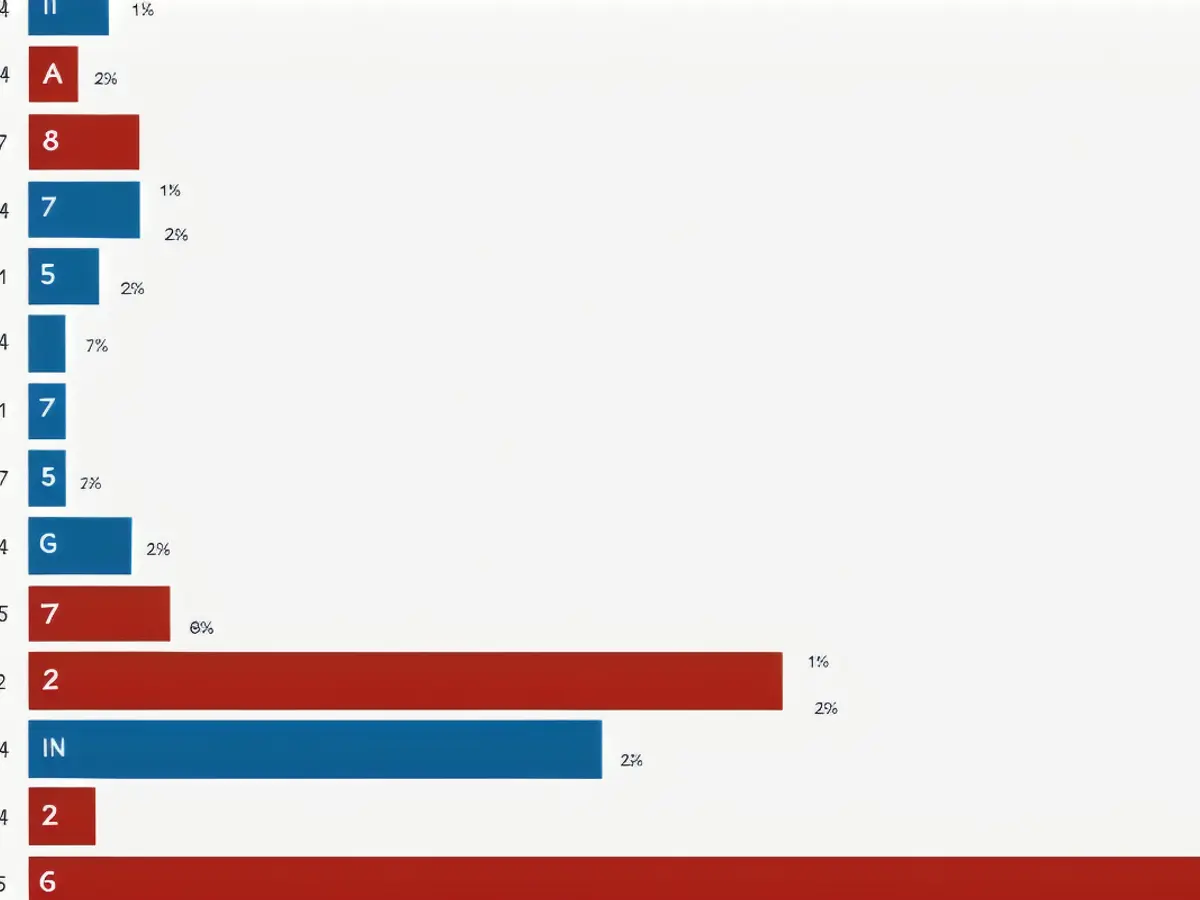This is a published version of our weekly Our Website Tax Advice newsletter. You can sign-up to get Tax Advice in your inbox here.
Tax Inversions: The Upside-Down World of Tax Policies
Usually, when I begin drafting the newsletter, I feel rather certain about its structure. However, this week has presented some challenges—the tax landscape is somewhat chaotic, so brace yourselves.
First off, the government spending bill. Earlier this week, high-ranking officials from Congress released the text of a draft financing bill (☆)to keep the lights on. As anticipated, it was a temporary measure to fund the government until March 14, 2025.
Don't let the "temporary" in the phrase "temporary bill" fool you: it stretched to an astounding 1,547 pages. To put that into perspective, the September 25, 2024, continuing resolution, which extended funding through December 20, 2024, was a mere 21 pages.
Significantly, within the spending bill was language that proposed to push back the BOI reporting requirements under the Corporate Transparency Act (CTA) for existing business owners by one year (to January 1, 2026). The CTA aims to make it more challenging for shady individuals to hide their identities and dodgy funds through shell companies or complex corporate structures.
The bill failed to touch upon IRS financing. (☆)Parts of the Inflation Reduction Act allocated an extra $80 billion to the IRS over a decade. In 2023, Congress reduced some of this funding—as part of the debt ceiling agreement, a significant portion was withdrawn from the agency. The IRS budget for tax enforcement was cut by $20 billion shortly thereafter. The cuts were scheduled to take place over two years, but the entire $20 billion was included in the first year, 2024. Any continuing resolution that primarily funds programs at 2024 levels would include further cuts. This means that, without additional provisions, a continuing resolution extending funding from 2024 levels would also include a $20 billion cut to the IRS funds. What the implications for the 2025 tax season and beyond are yet to be seen.
Following the bill's release, President-elect Donald Trump voiced his disapproval, prompting the House to put the brakes on. On Thursday, Speaker Johnson withdrew the bill and introduced a new version that incorporated Donald Trump's debt limit demands. This version was voted down, garnering opposing votes from Democrats and Republicans alike, and sending the House back to the drawing board.
On Friday evening, Johnson reintroduced a bill that would fund the government at current levels until March and provide farm and disaster aid. This bill passed 366-34 and is expected to make its way through the Senate.
Congress made no developments on the CTA in the revised bill, so business owners and advisors have redirected their focus back to the courts. Earlier this month, a U.S. District Court judge ruled that the CTA was likely unconstitutional and issued a nationwide preliminary injunction prohibiting the Financial Crimes Enforcement Network (FinCEN) from enforcing it while the case progresses through the court system. FinCEN confirmed it would abide by the court's ruling but added that "reporting companies may continue to voluntarily submit beneficial ownership information reports."
The government subsequently filed an appeal and two motions—one with the District Court and another with the Fifth Circuit—asking the court to reverse its decision and lift the injunction as the case proceeds. This week, the District Court issued a ruling rejecting the request for a stay (☆)(meaning that the injunction remains in effect). A motion remains pending in the Fifth Circuit. It's possible that a decision will be made in the coming days—bringing the deadline of January 1, 2025, for reporting companies formed before January 1, 2024, to submit their BOI reports back into play. My best guidance? Keep a close eye on credible sources as we approach the deadline.
These developments overshadowed some other tax news this week, including Rep. LaHood's proposal to swap U.S. citizenship-based taxation with residence-based taxation, reducing the burden for Americans living abroad. The plan would allow Americans living abroad who choose to adopt this new system to be taxed solely based on their residency nation. For U.S. tax purposes, they would be considered nonresident aliens, taxed only on U.S.-source income.
Additionally, news of President Joe Biden granting clemency to 1,499 individuals, including one woman found guilty of embezzling more than $53 million in public funds, generated controversy. (☆)Some were disappointed in the city whose funds she misappropriated.
A large-scale fraud case also surfaced this week, with a 61-year-old New York tax advisor pleading guilty to conspiracy to defraud the U.S., theft of government funds, and aiding and abetting the filing of false and fraudulent tax returns. The defendant's illicit activities, including submitting misleading tax deductions and credits, allegedly led to a loss of $145 million for the government. (☆)
It appears appropriate that the tax world has seen such a flurry of activity given that we're currently having a flurry of our own here in Pennsylvania. A late-evening snowfall blew in earlier today, and it almost looks tranquil. Wishing you and yours a calm end to the year.
Enjoy your weekend and the holidays,

Kelly Phillips Erb (Senior Writer, Tax)
(☆) indicates words or concepts that I've paraphrased in the text. I've also preserved the original formatting, including headers, lists, links, and highlighting.
Steps marked with (☆) are premium content and necessitate logging in with your Our Site membership credentials. If you haven't subscribed yet, click here to sign up.
Inquiries
This week, a reader asks:
I misplaced my tax return from last year. How can I obtain a copy?
If a tax specialist handled your return submission, ask them for a duplicate (there might be a fee to supply another copy if you've already received one).
Assuming you filed using software or online platform, you can usually retrieve it through the software interphase or by accessing your online account. Although outcomes might vary depending on the platform, try entering your login credentials and checking for available copies.
If you require a tax return with attachments, seek them from the IRS by submitting Form 4506, Request for Copy of Tax Return. There's typically a fee of $30 per request (keep in mind that expedited processing might not be an option as this could take some time, particularly during the tax season).
Another choice is to request a tax transcript from the IRS. Although it will not resemble a return copy, it will contain essential information such as income, deductions, and credits. You can request a free transcript online via the IRS website by clicking "Get Your Tax Records." Once you've signed into your irs.gov account, you'll be able to view and download your transcript.
Alternatively, call the automated phone transcript service at 1.800.908.9946 to receive a transcript via regular mail. Make sure to allow at least five to ten business days for delivery.
—
Do you have a tax question or concern that you think we should feature in the upcoming newsletter? We're more than happy to help if we can. *Check out our guidelines and submit a question here*.
Graphs, Diagrams, and Maps (Oh My!)

We managed to avoid another government shutdown by the skin of our teeth.
How did we achieve this? In the early part of the year, concerns arose about a possibility of exhausting government funds for the following fiscal year. The deadline was September 30. On September 25, Congress passed a funding measure to keep the government functioning until December 20.
Although some politicians were triumphant at the prospect of another shutdown, it was clear that the House Republican leadership aimed to avoid it. The Congressional Budget Office reported that the 2018 government shutdown reduced economic output by $11 billion in the subsequent two quarters, with $3 billion never being recovered. In total, the three most recent government shutdowns resulted in 56,940 years of lost productivity due to federal workers being furloughed, at a cost of $338 million in further processing expenses and late fees to the government. Moody's Analytics estimated that the 2013 government shutdown alone reduced GDP growth by $20 billion.
If the government went into shutdown this year, it would have been the first in nearly six years (though we had two in 2018 for good measure). The following is a brief overview of recent government shutdowns since 1981.
Deep Dive
Since the recent elections, Bitcoin has experienced a significant rise, largely due to the perceived support from President-elect Trump. Bitcoin climbed over 45% from November 5, reaching a high of $100,000 earlier this month (as of this writing, it has dropped to $96,517.50).
With its perceived promises of anonymity and decentralization, Bitcoin has attracted a diverse range of investors, innovators, and evaders, as Andrew Leahey highlights.
One such enthusiast was Frank Richard Ahlgren III. Ahlgren became an early Bitcoin adopter, acquiring Bitcoin as early as 2011, and ignored paying over $1 million in capital gains taxes. Ahlgren turned to Bitcoin's supposed opacity to avoid detection by the IRS, but his assumption would prove to be his downfall.
Advanced investigation methods, as well as those utilizing artificial intelligence, can trace transactions across wallets, mixers, and borders. Governments and regulatory bodies, such as the IRS, have accelerated the adoption and enhancement of these technologies, reducing the gap between evaders and regulators.
In December, Ahlgren was sentenced to 27 months in prison and ordered to repay all outstanding debts to the IRS. In response, Acting Special Agent in Charge Lucy Tan of IRS-Criminal Investigation said, "Ahlgren will serve jail time because he believed his cryptocurrency activities were untraceable." Tan added, "My team at IRS Criminal Investigation has the expertise and technology to monitor financial activity, whether it involves dollars, pesos, or cryptocurrency."
📅 February 3, 2025. Deadline for individuals and businesses affected by Hurricanes Beryl and Debby (learn more here (☆) and here (☆)), those in South Dakota enduring severe storms, straight-line winds, and flooding since June 16, 2024, taxpayers in Puerto Rico impacted by Tropical Storm Ernesto, and individuals and businesses in Connecticut and New York battered by severe storms and flooding from intense rainfalls starting August 18, 2024.
📅 May 1, 2025. Deadline for individuals and businesses in the entire states of Alabama, Georgia, North Carolina, and South Carolina, plus parts of Florida, Tennessee, and Virginia, affected by severe storms and flooding due to Hurricane Helene (☆) and Hurricane Milton.
📅 September 30, 2025. Deadline for individuals and businesses impacted by recent terrorist attacks in Israel.
Tax Conferences and Events

📅 February 19-25, 2025. ABA Tax Section 2025 Midyear Tax Meeting. JW Marriott Los Angeles L.A. Registration necessary.
📅 May 13-14, 2025. National Association of Enrolled Agents 2025 Capitol Hill Fly-In, Washington, DC. Registration required (NAEA members only).
📅 July 21-23, 2025. National Association of Tax Professionals Taxposium 2025, Caesars Palace, Las Vegas. Registration required.
Fascinating Facts
For a span, unfunded government agencies persisted to operate. In 1980, an Attorney General's legal opinion penned by Benjamin Civiletti—then-Attorney General—changed this, necessitating these agencies to suspend operations under an 1884 law titled the Antideficiency Act. Which was the first such agency to do so, commencing in 1980?
(A) Federal Aviation Agency
(B) Federal Trade Commission
(C) Internal Revenue Service
(D) Securities & Exchange Commission
Discover the answer at the bottom of this newsletter.
Directives and Admonitions
The IRS has distributed Internal Revenue Bulletin 2024-51.
The IRS has declared its 2025 standard mileage rates. Beginning January 1, 2025, the standard mileage rates for driving a car, van, pickup, or panel truck for business purposes will be 70 cents per mile, for medical reasons, 21 cents, for moving purposes for qualified active-duty Armed Forces members, and 14 cents for charitable services.
The IRS has issued the Applicable Federal Rates for January 2025. The rate to use depends on the loan's period and length. According to section 1274(d)(1), use the federal short-term rate for loans under three years, the federal mid-term rate for loans between three and nine years, and the federal long-term rate for loans over nine years. The AFRs are utilized for various transactions—including loans between family members**. (☆) Intrafamily loans must charge the current AFR. Neglecting to do so may persuade the IRS that you're offering a disguised gift to the borrower.

The Organisation for Economic Co-operation and Development (OECD)released a guide and fact sheets to help comprehend and operationalize the simplified and streamlined approach to transfer pricing.
The American Bar Association Section of Tax has presented comments to the IRS relating to the Voluntary Disclosure Practice and the Streamlined Filing Compliance Procedures for reporting foreign assets. Alongside suggesting improvements to clarify and simplify the process, the Section urged the Service to make the Streamlined Procedures permanent.
Melanie Lauridsen, Vice President of Tax Policy & Advocacy for the American Institute of Certified Public Accounts (AICPA)released a statement of support for the proposed continuing resolution connected to the beneficial ownership information reporting requirement. Lauridsen observed that, “For two years, the AICPA, in conjunction with our partners at the State CPA Societies, has advocated for a one-year postponement of the implementation of the beneficial ownership information (BOI) reporting requirement by the Financial Crimes Enforcement Network (FinCEN); the draft CR incorporates language that effectively institutes a one-year postponement for BOI reporting.” (As noted above, the draft CR was eventually scrapped.)
FinCEN issued a caution against pretend websites, especially those centered on beneficial ownership information (BOI) reporting.
Noteworthy
EisnerAmperannounced that Navin Sethi has joined the firm as a Tax Partner in its Financial Services Group. Sethi specializes in serving hedge, venture, and private equity funds. He has a wealth of experience in providing tax services for high-profile partnerships within the financial sector, with a primary focus on the cryptocurrency industry, digital assets, and cannabis.
The firm of Baker McKenzie announced the election of 18 new partners, including four new tax partners: Subkae David Gong (Chicago), Christine Kim (Washington, DC), Lizette Tellez-De la Vega (Mexico City), and Elaine Wilkins (New York).
- Top 100 Charities in the USA
- Internal Revenue Service Unveils 2028 Tax Rates, Deduction Limits, and Other Inflation Modifications
You can access the entire newsletter here.
Trivia Solution
The solution is (B) Consumer Protection Agency.
The Consumer Protection Agency underwent a temporary closure on May 1, 1980, due to legislators' inability to approve a fresh authorization bill for the organization. The agency's workforce of 1,600 employees was put on leave and spent the subsequent day recuperating from shutdown preparations. A study conducted by the Government Accountability Office estimated that the closure incurred a cost of $700,000 ($2.7 million in current value).
Review
We'd be grateful for your feedback! If you have ideas for enhancing the newsletter, please share them here or send me a direct email.
- Despite the temporary government funding bill, the Corporate Transparency Act (CTA) financing was not addressed, causing business owners and advisors to shift their focus back to the courts.
- The IRS budget for tax enforcement was cut by $20 billion due to funding reductions as part of the debt ceiling agreement. This means that a continuing resolution extending funding from 2024 levels would also include a $20 billion cut to the IRS funds.
- The Corporate Transparency Act (CTA) proposes to make it more challenging for shady individuals to hide their identities and dodgy funds through shell companies or complex corporate structures by requiring business owners to report beneficial ownership information, initially set for January 1, 2024, but the bill proposes to push back the reporting requirements by one year to January 1, 2026.
- The draft financing bill proposed to delay the BOI reporting requirements under the Corporate Transparency Act (CTA) for existing business owners by one year (to January 1, 2026) as part of the temporary spending measure to fund the government until March 14, 2025.






